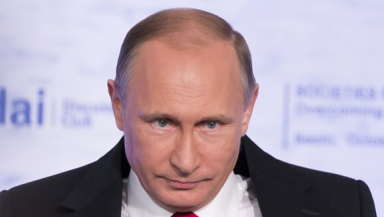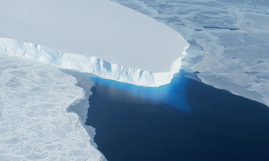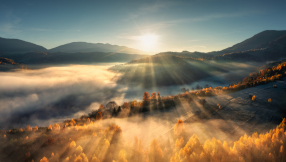
Earlier this year, over 30 people were killed and tens of thousands of Russians were rendered homeless due to severe wildfire in Siberia.
For scientists, there is no question about the cause of the wildfire: climate change.
But for the Russian government and the state-controlled media, locals who burned grasses and incompetent crews who fought the wildfire were largely to blame for the deadly inferno.
Stanislav Belkovsky, a political analyst critical of the current Russian administration, raised concern about how Russian President Vladimir Putin is taking the lead in turning a blind eye about the effects of climate change to the country and the world as a whole.
"[For Putin], there is no global warming, that this is a fraud to restrain the industrial development of several countries including Russia," Belkovsky said in an article by The New York Times.
"That is why this subject is not topical for the majority of the Russian mass media and society in general," he added.
Belkovsky's statements are not at all unfounded. Andrey Illarionov, Putin's former senior economic adviser, admitted to The New York Times, that the Russian government does not see an urgent need to fight climate change, based on independent studies it conducted.
"We found that, while climate change does exist, it is cyclical, and the anthropogenic role is very limited," Illarionov explained.
"It became clear that the climate is a complicated system and that, so far, the evidence presented for the need to 'fight' global warming was rather unfounded," the former Russian government official added.
This scepticism about climate change has rubbed off to the Russian media, and even the Russian public at large. Galina Timchenko, head of the popular news website Meduza, for instance, admitted that Russian media tend not to take interest in climate change issues.
"Unfortunately climate change is not very interesting to the public," Timchenko said.
She added that the Russian audience are more interested in the economy and in the conflict in Syria and Ukraine.
"It is difficult to spend editorial resources on things that are now a low priority in the midst of the economic crisis," she said.
Marianna Poberezhskaya, author of the academic work "Communicating Climate Change in Russia, " for her part, said Russian media is committing a huge mistake through its "climate silence."
"Russian mass media repeat the same mistake that Western journalists used to make: the false balance, where the idea of the human effect on climate change is presented along with sceptics' point of view," she told The New York Times.















